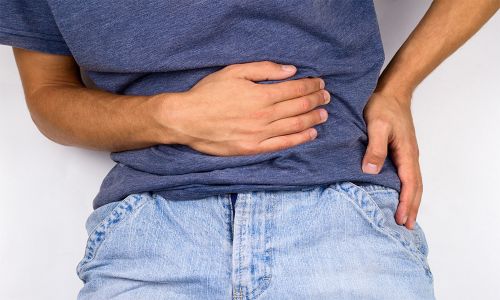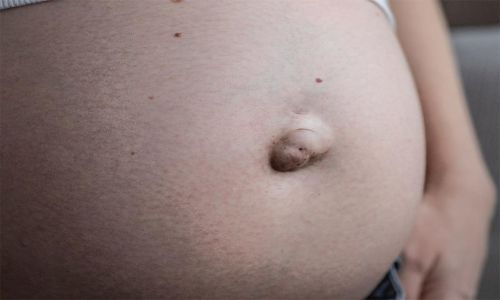Hernia surgery is a surgical intervention that is usually performed quickly and safely. However, there are points to consider after hernia surgery. The recovery process may vary depending on the patient's general health condition, the type of surgery and the extent of the surgical intervention.
Things to Consider After Hernia Surgery
 Hernia surgery is a common and generally safe surgical procedure. However, there are points that patients should pay attention to in the postoperative period. Paying attention to this period accelerates the healing process and minimizes the risk of complications. After surgery, heavy physical activities should be avoided. Especially heavy lifting and movements that strain the abdominal muscles may damage the surgery area. You can start taking light walks as recommended by your doctor. You can increase your activities in the future. Sudden movements should be avoided. Nutrition has an important role in the healing process. Try to prevent constipation by consuming fibrous foods. Constipation is undesirable as it can put pressure on the surgery area. Drinking plenty of water and eating regularly supports your body's recovery in this process. The wound area should be kept clean and dry. This reduces the risk of infection. You should apply dressings as recommended by your doctor and pay attention to hygiene rules. If you notice symptoms such as redness, swelling, or inflammation, contact your doctor immediately. Painkillers and other medications prescribed by the doctor should be used regularly. Additionally, it is important to consult your doctor before stopping any medication. It is important not to skip doctor's check-ups after surgery. Complying with the specified warnings ensures a healthy healing process. You can return to your daily life faster by taking care of yourself.
Hernia surgery is a common and generally safe surgical procedure. However, there are points that patients should pay attention to in the postoperative period. Paying attention to this period accelerates the healing process and minimizes the risk of complications. After surgery, heavy physical activities should be avoided. Especially heavy lifting and movements that strain the abdominal muscles may damage the surgery area. You can start taking light walks as recommended by your doctor. You can increase your activities in the future. Sudden movements should be avoided. Nutrition has an important role in the healing process. Try to prevent constipation by consuming fibrous foods. Constipation is undesirable as it can put pressure on the surgery area. Drinking plenty of water and eating regularly supports your body's recovery in this process. The wound area should be kept clean and dry. This reduces the risk of infection. You should apply dressings as recommended by your doctor and pay attention to hygiene rules. If you notice symptoms such as redness, swelling, or inflammation, contact your doctor immediately. Painkillers and other medications prescribed by the doctor should be used regularly. Additionally, it is important to consult your doctor before stopping any medication. It is important not to skip doctor's check-ups after surgery. Complying with the specified warnings ensures a healthy healing process. You can return to your daily life faster by taking care of yourself.
Care After Hernia Surgery
 Care after hernia surgery is very important. It ensures that the healing process progresses healthily. Establishing a careful care routine in the postoperative period reduces the risk of infection. This helps patients return to their daily lives more quickly. Keeping the surgical area clean is one of the most effective ways to prevent infections. Dressing changes should be made as often as recommended by your doctor and hygiene rules should be observed. The wound area should not be contacted with water and should be kept dry until completely healed. If symptoms such as redness, discharge or bad odor are noticed around the wound, consult your doctor immediately. Mild pain after surgery is normal. Painkillers prescribed by your doctor should be used regularly. Instructions must be followed. Anti-inflammatory drugs or antibiotics should be taken on time. Be sure to consult your doctor before stopping the medication. It is important to follow a balanced diet for a healthy healing process. Fibrous foods regulate bowel movements. It also prevents constipation. Constipation can cause discomfort by putting pressure on the surgery area. Also, plenty of water should be drunk. This ensures the body's moisture balance. Rest after surgery is important. However, one should not remain completely still. Light walks increase blood circulation. Thus, it contributes to the healing process. Heavy lifting, bending and movements that strain the abdominal muscles should be avoided. You should follow your doctor's instructions by not neglecting regular check-ups. This reduces the risk of complications and allows you to recover faster.
Care after hernia surgery is very important. It ensures that the healing process progresses healthily. Establishing a careful care routine in the postoperative period reduces the risk of infection. This helps patients return to their daily lives more quickly. Keeping the surgical area clean is one of the most effective ways to prevent infections. Dressing changes should be made as often as recommended by your doctor and hygiene rules should be observed. The wound area should not be contacted with water and should be kept dry until completely healed. If symptoms such as redness, discharge or bad odor are noticed around the wound, consult your doctor immediately. Mild pain after surgery is normal. Painkillers prescribed by your doctor should be used regularly. Instructions must be followed. Anti-inflammatory drugs or antibiotics should be taken on time. Be sure to consult your doctor before stopping the medication. It is important to follow a balanced diet for a healthy healing process. Fibrous foods regulate bowel movements. It also prevents constipation. Constipation can cause discomfort by putting pressure on the surgery area. Also, plenty of water should be drunk. This ensures the body's moisture balance. Rest after surgery is important. However, one should not remain completely still. Light walks increase blood circulation. Thus, it contributes to the healing process. Heavy lifting, bending and movements that strain the abdominal muscles should be avoided. You should follow your doctor's instructions by not neglecting regular check-ups. This reduces the risk of complications and allows you to recover faster.
Recovery Process After Hernia Surgery
 The recovery process after hernia surgery depends on the type of surgery. The patient's health condition also affects this process. Following the doctor's recommendations will accelerate recovery. It reduces the risk of complications. In the first days after surgery, you may experience mild pain and tenderness in the surgery area. During this period, relief is provided when the painkillers prescribed by the doctor are used regularly. Patients are usually encouraged to walk within a few hours after surgery. Light walks increase blood circulation. It supports healing. Heavy lifting and sudden movements should be avoided during the first week. Daily activities can be increased slowly, but pressure should not be placed on the surgery area. Paying attention to wound care reduces the risk of infection. Dressing should be done regularly and the wound should be kept hygienic. Patients usually return to their daily lives within 4-6 weeks. However, heavy physical activities should be avoided during this period. Movements that may damage the surgery area should be avoided. The immune system should be strengthened by following a healthy diet. After the recovery process after hernia surgery is completed, doctor's recommendations should be followed. If symptoms such as swelling, increased pain or infection are noticed, a doctor should be consulted. It is possible to regain health in a short time with a careful recovery plan.
The recovery process after hernia surgery depends on the type of surgery. The patient's health condition also affects this process. Following the doctor's recommendations will accelerate recovery. It reduces the risk of complications. In the first days after surgery, you may experience mild pain and tenderness in the surgery area. During this period, relief is provided when the painkillers prescribed by the doctor are used regularly. Patients are usually encouraged to walk within a few hours after surgery. Light walks increase blood circulation. It supports healing. Heavy lifting and sudden movements should be avoided during the first week. Daily activities can be increased slowly, but pressure should not be placed on the surgery area. Paying attention to wound care reduces the risk of infection. Dressing should be done regularly and the wound should be kept hygienic. Patients usually return to their daily lives within 4-6 weeks. However, heavy physical activities should be avoided during this period. Movements that may damage the surgery area should be avoided. The immune system should be strengthened by following a healthy diet. After the recovery process after hernia surgery is completed, doctor's recommendations should be followed. If symptoms such as swelling, increased pain or infection are noticed, a doctor should be consulted. It is possible to regain health in a short time with a careful recovery plan.


